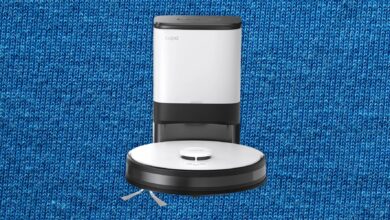US prescription market hamstrung for 9 days (so far) by ransomware attack


Getty Images
Nine days after a Russian-speaking ransomware syndicate took down the biggest US health care payment processor, pharmacies, health care providers, and patients were still scrambling to fill prescriptions for medicines, many of which are lifesaving.
On Thursday, UnitedHealth Group accused a notorious ransomware gang known both as AlphV and Black Cat of hacking its subsidiary Optum. Optum provides a nationwide network called Change Healthcare, which allows health care providers to manage customer payments and insurance claims. With no easy way for pharmacies to calculate what costs were covered by insurance companies, many had to turn to alternative services or offline methods.
The most serious incident of its kind
Optum first disclosed on February 21 that its services were down as a result of a “cyber security issue.” Its service has been hamstrung ever since. Shortly before this post went live on Ars, Optum said it had restored Change Healthcare services.
“Working with technology and business partners, we have successfully completed testing with vendors and multiple retail pharmacy partners for the impacted transaction types,” an update said. “As a result, we have enabled this service for all customers effective 1 pm CT, Friday, March 1, 2024.”
AlphV is one of many syndicates that operates under a ransomware-as-a-service model, meaning affiliates do the actual hacking of victims and then use the AlphV ransomware and infrastructure to encrypt files and negotiate a ransom. The parties then share the proceeds.
In December, the FBI and its equivalent in partner countries announced they had seized much of the AlphV infrastructure in a move that was intended to disrupt the group. AlphV promptly asserted it had unseized its site, leading to a tug-of-war between law enforcement and the group. The crippling of Change Healthcare is a clear sign that AlphV continues to pose a threat to critical parts of the US infrastructure.
“The cyberattack against Change Healthcare that began on Feb. 21 is the most serious incident of its kind leveled against a US health care organization,” said Rick Pollack, president and CEO of the American Hospital Association. Citing Change Healthcare data, Pollack said that the service processes 15 billion transactions involving eligibility verifications, pharmacy operations, and claims transmittals and payments. “All of these have been disrupted to varying degrees over the past several days and the full impact is still not known.”
Optum estimated that as of Monday, more than 90 percent of roughly 70,000 pharmacies in the US had changed how they processed electronic claims as a result of the outage. The company went on to say that only a small number of patients have been unable to get their prescriptions filled.
The scale and length of the Change Healthcare outage underscore the devastating effects ransomware has on critical infrastructure. Three years ago, members affiliated with a different ransomware group known as Darkside caused a five-day outage of Colonial Pipeline, which delivered roughly 45 percent of the East Coast’s petroleum products, including gasoline, diesel fuel, and jet fuel. The interruption caused fuel shortages that sent airlines, consumers, and filling stations scrambling.
Numerous ransomware groups have also taken down entire hospital networks in outages that in some cases have threatened patient care.
AlphV has been a key contributor to the ransomware menace. The FBI said in December the group had collected more than $300 million in ransoms. One of the better-known victims of AlphV ransomware was Caesars Entertainment and casinos owned by MGM, which brought operations in many Las Vegas casinos to a halt. A group of mostly teenagers is suspected of orchestrating that breach.
Source link




